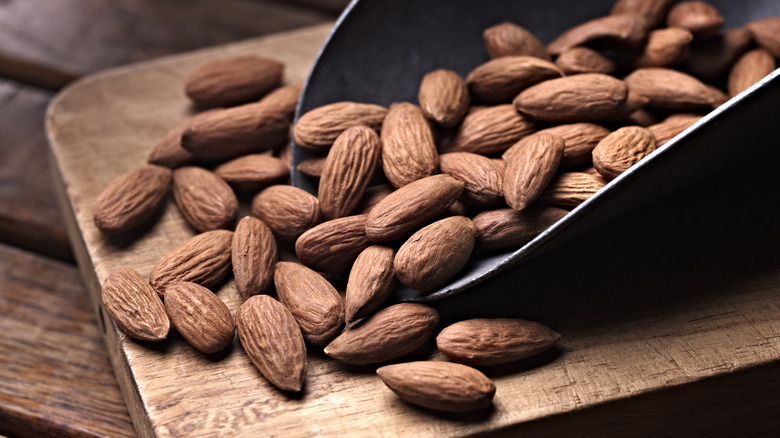What Happens To Your Blood Pressure When You Eat Almonds Every Day
As your heart beats this very moment, it's pushing about 5 liters of blood through your arteries every moment. It's a lot of work, not only for your heart but also for your arteries. Your blood pressure is determined by how much force your arteries endure as they supply your cells and tissues with oxygen-rich blood. You might not notice when your blood pressure is high or low, and your blood pressure fluctuates throughout the day. Problems occur when your blood pressure remains high because excessive pressure can damage your arteries over time and lead to coronary heart disease.
You can lower your blood pressure without medication through simple lifestyle changes such as exercising 150 minutes a week, quitting smoking, reducing alcohol, managing stress, and keeping a healthy weight. The Dietary Approaches to Stop Hypertension diet and the Mediterranean diet are the best diets for people with hypertension because they emphasize whole foods that are low in sodium and fat and high in potassium. A one-ounce serving of almonds provides 208 milligrams of potassium, which is 4% of your recommended value of 4,700 milligrams. While that might not seem like a substantial amount of potassium, almonds have been found to reduce blood pressure.
Almonds can help control blood pressure
Even though almonds are calorie-dense, they can control your blood pressure while you're losing weight. A 2016 article in The Journal of Nutrition put 86 people on diets that created a 500-calorie deficit. Although the diets were equal in calories, one group ate enough almonds every day to account for 15% of their daily calories. The almond dieters who complied with their diets saw significant decreases in their systolic and diastolic blood pressure after 12 weeks. They also lost more fat around their torso and more total body fat.
Although this was a single study using overweight individuals, meta-analyses that combine the results of several studies of the effect of almonds on blood pressure have found differences in results. A 2020 meta-analysis in Complementary Therapies in Medicine combined the results of 16 studies and found that eating almonds can reduce your diastolic blood pressure, but not your systolic blood pressure. Your diastolic blood pressure measures the force on your arteries between heartbeats. However, a 2020 meta-analysis in the Journal of King Saud University-Science analyzed 15 studies to determine that adding almonds to your diet reduces systolic blood pressure but not diastolic blood pressure. Systolic blood pressure is the higher number in your blood pressure reading and measures the force on your arteries when your heart beats.
Other benefits of almonds
Even if you don't have high blood pressure, you can turn to almonds for other health benefits. Almonds might also lower your risk of heart disease by reducing your cholesterol, according to a 2018 article in Nutrients. The LDL cholesterol-lowering potential of almonds has been attributed to the proportion of healthy unsaturated fats compared to saturated fats. Almonds can also increase HDL cholesterol and reduce triglycerides.
A 2020 review in Nutrients found that almonds might also be helpful in regulating your blood sugar and improving your insulin response. Because almonds are high in fat, fiber, and protein, adding almonds to your meals can balance out the glycemic index of your diet. The monounsaturated fat, magnesium, arginine, and phytochemicals in almonds reduce inflammatory markers and oxidative stress in the body. The polyphenols in almonds, mostly found in their skin, can improve the composition of your gut bacteria by promoting good bacteria and suppressing the pathogenic ones.



